Communities & Memberships
These 9 Steps Make Online Community Moderation Easy
In this article, we’ll talk about why community moderation is vital and how to become great at it.
Author
Last Updated
February 6, 2025

It would be so great if every community was just organically a safe and encouraging place to be.
Well, the real world of online communities is a bit… um… messier. But the good news is, with a bit of work, your community can be that amazing place where people feel safe, know they belong, and can thrive.
The secret is online community moderation. And by being proactive and setting up community moderation before you even need it, you’ve taken an important step toward making sure you’ve got a place your members will love.
In this article, we’ll cover:
What community moderation is.
Why it's important.
How to implement a community moderation strategy.
If you want more support in building your online community, come join OUR Mighty Community for free and meet other new and established community owners! We’d love to meet you. Join for free!
What is community moderation?
Community moderation is monitoring the activity of community members to ensure it aligns with a set of community guidelines. Moderators can usually flag content, remove or report it, and deal with the member who violated the guideline.
Most online communities have the Host as the first moderator. But, as they grow, more moderators are often needed. Many communities rely on supermembers to assist Host(s) with moderation (either in a paid or volunteer capacity). And most community platforms also have features for members to take part in moderation.
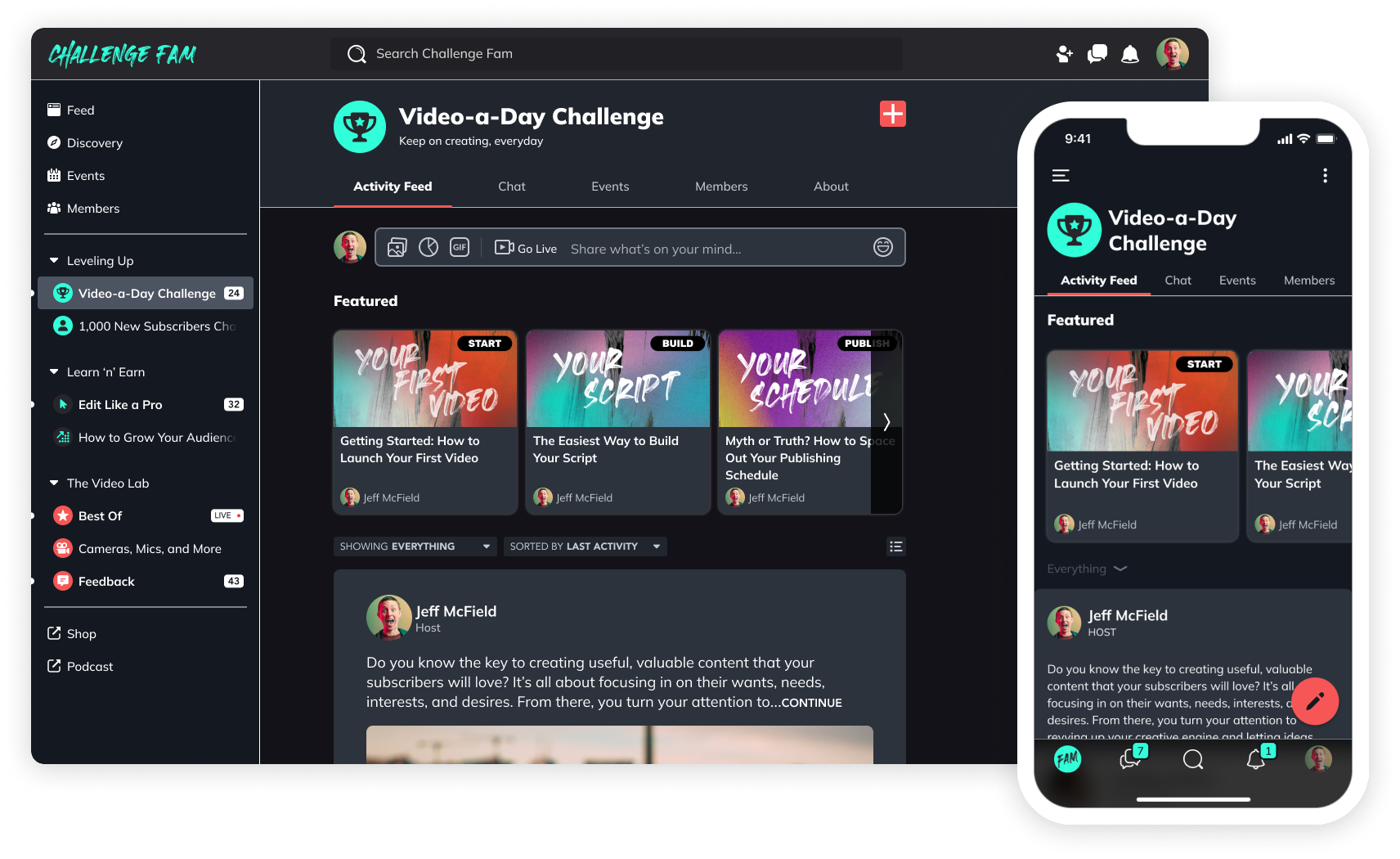
Why do you need online community moderation?
Wherever there's humans, there's conflict. And online communities are no different. Most of the time, people will be wonderful and respect each other. But problems do come up:
Sometimes it comes from actual trolls who are just out to cause trouble and attack people.
And sometimes, well-meaning members can get carried away in disagreements that can turn personal.
When this happens, you want to know what to do to get your community back to harmony.
Here are some reasons you need community moderation.
Creating a safe space: People who join a community have the right to feel safe there, either from direct or indirect attacks or aggression.
Making members accountable: Your members should know that they will be held accountable for the things they say and do, and act accordingly.
Handling disputes: When disputes happen, moderation can help resolve it quickly.
Getting rid of trolls: Unfortunately, there are some people who come in like a wrecking ball. Their only goal is to create chaos and hurt people, for whatever reason. You need a way to get rid of the trolls to protect the valuable seeds of trust and friendship that are growing in your community.
Combating spam: Even though spam isn't always harmful to members, it hurts the user experience of your community. It can make people less likely to sign on and engage.
Ensuring legal compliance: Moderators can prevent the sharing of illegal content.
Preventing misinformation: Moderation keeps your content quality high and can prevent spreading content that's not true.
What community moderation entails
Here are some of the common actions that community moderation requires, both on the part of Hosts and moderators.
Educating: Educating people on the community code of conduct is important for prevention.
Enforcing guidelines: We'll talk below about setting guidelines. Moderation is an important part of making sure those guidelines are followed.
Resolving conflict: A moderator's job is essential to resolving conflict in community.
Monitoring member reports: A modern community platform will give you the ability to have members report content and users, and you'll need to follow up.
Taking disciplinary action: On rare occasions, moderation can rise to the level of taking disciplinary action, even removing a member from a community.
How to moderate an online community
1. Create community guidelines
One of the most important parts of moderating an online community is having clear, relevant guidelines that all community members know about. In general, community guidelines will cover issues like how members treat each other, what expectations are for sharing and creating content, and occasionally information on community business practices (e.g. how to get a refund if you're unhappy with your community membership).
The guidelines are vital for creating a shared understanding of what’s expected.
If you want more information on creating community guidelines, we wrote a guide in this post.
Here are some of the things guidelines should contain:
Conduct expectations: Communicate how you expect members to treat one another.
Harmful content rules: The types of content that aren't welcome in your community (e.g. violence, pornography, etc.).
Spam rules: Content that isn't graphic or violent, but diminishes users' experience (e.g. self-promotional, sales content, etc.).
Harassment and bullying rules: Content attacking or belittling another member.
Privacy or personal information rules: Prevents members posting sensitive information about another member.
Reporting and moderation mechanisms: Finally, community guidelines should include what members can expect when they report and what actions will be taken.
2. Educate members on the rules
If you've created community guidelines, you also need to make sure your members actually know about them.
If one of your members violates a guideline they didn't know about, you can still deal with it. But it can be harder.
Here are some best practices for how to educate your members about community guidelines.
Use the welcome sequence: the best time for members to learn about your community guidelines is right after they join! Use your automated welcome sequence to share them as part of onboarding.
Be proactive: don't just wait for people to find your guidelines. Refer to them frequently, and post them somewhere in your community where people can find them if they need them.
Tell members where to go with questions: community guidelines don't have to be a one-way street. Make sure members know who to contact if they want to learn more or have questions or suggestions.
Refer to them often: whenever you can and it feels organic, refer back to your community guidelines. So, for example, if you're having a discussion, you could introduce it with something like, "Remember that we want to make sure everyone has a chance to talk and that nobody monopolizes the discussion, as outlined in our community guidelines.”
3. Establish the consequences for misbehavior
While it's never something you'll enjoy doing, it's important to follow through with consequences when people violate the rules. This is especially vital when a member has done something that makes another member feel unwelcome or unsafe.
And if and when that moment comes, it will be much easier to discipline the member if you establish beforehand what the consequences will be.
You can choose exactly how you want to set this up, and it will depend on your style.
Some communities have a zero tolerance policy for certain behaviors and will kick members out immediately.
Others have a two or three-strike rule.
You might also want to establish different consequences for different misbehaviors. For example, someone who cruelly attacks and harasses another member intentionally should probably be treated differently than somebody who drops a few too many copies of their affiliate link for Ray-Bans.
But as always, it's up to you to lay out consequences that you feel good about, and that you know will make your members feel safe.
4. Appoint and train moderators
You don't need to enforce your community guidelines single-handedly. Identify people you trust in the community, people who get your vision and interact well with others, and deputize them to be your moderators.
Walk through the rules with them. Get their feedback on the community guidelines. And show them how to deal with rule-breakers.
Your platform should give you a way to promote moderators easily.
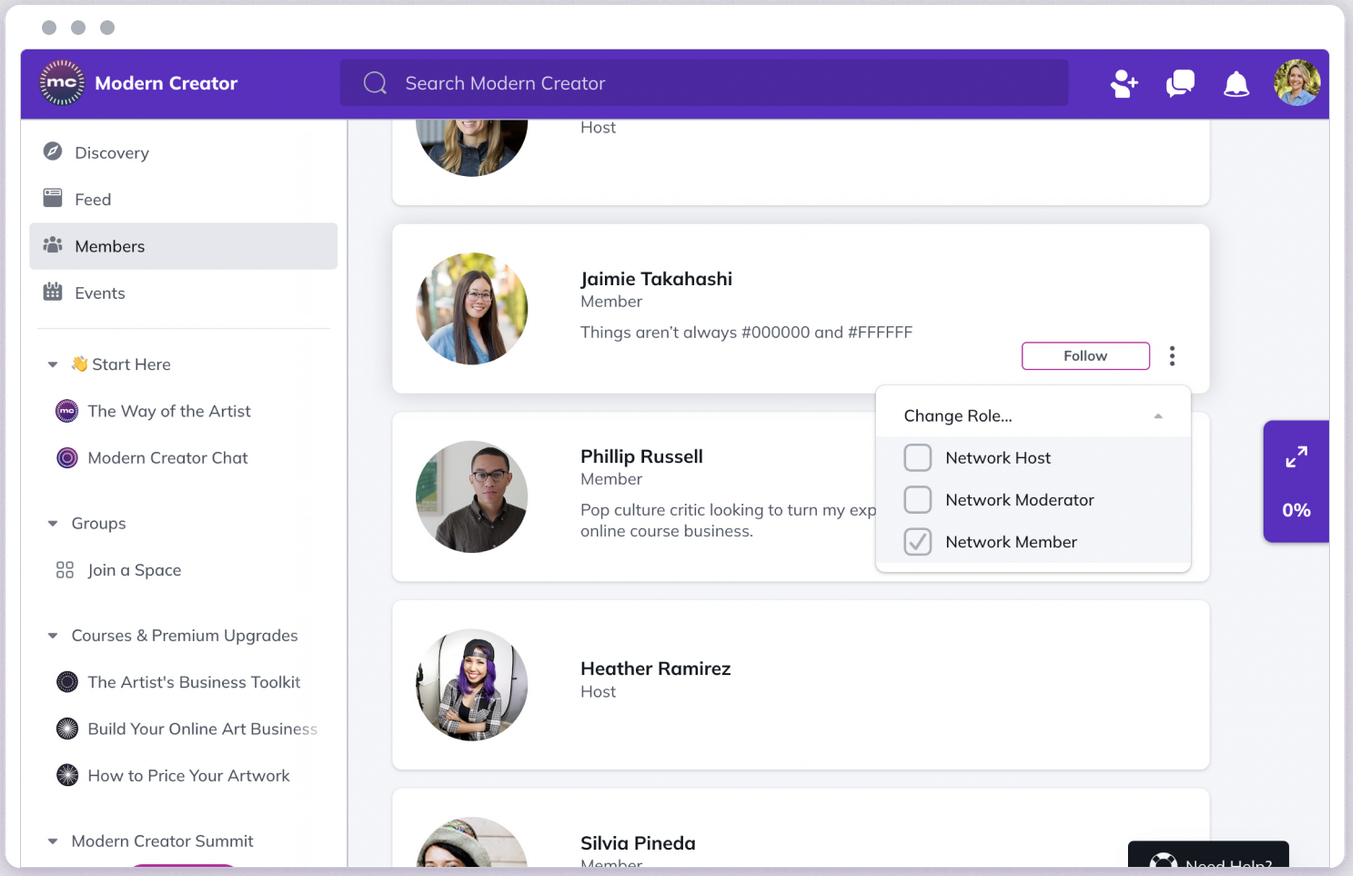
FAQ: Should you pay moderators? Some communities decide to pay their moderators. If your community has a healthy financial balance, even paying your moderators for a few hours a week of their work can be a nice gesture. After all, the service they do for your community is invaluable. If your community is just getting started, there’s a good chance some of your best members will gladly do it for free.
5. Empower your whole community
Official moderators are important, but moderation isn't just about top-down authority. The best community moderation approaches empower the whole community to create the best possible space: a culture of moderation.
Here are some ways you can empower your community members to build a moderation culture.
Encourage ‘If you see something, say something’: personal attacks or microaggression often go unreported by the victim. Encourage your members to stand up for others when they feel someone is being attacked.
Make blocking and reporting processes clear: make sure your members know how to report violations, who to report them to, and what the process will be for handling these reports.
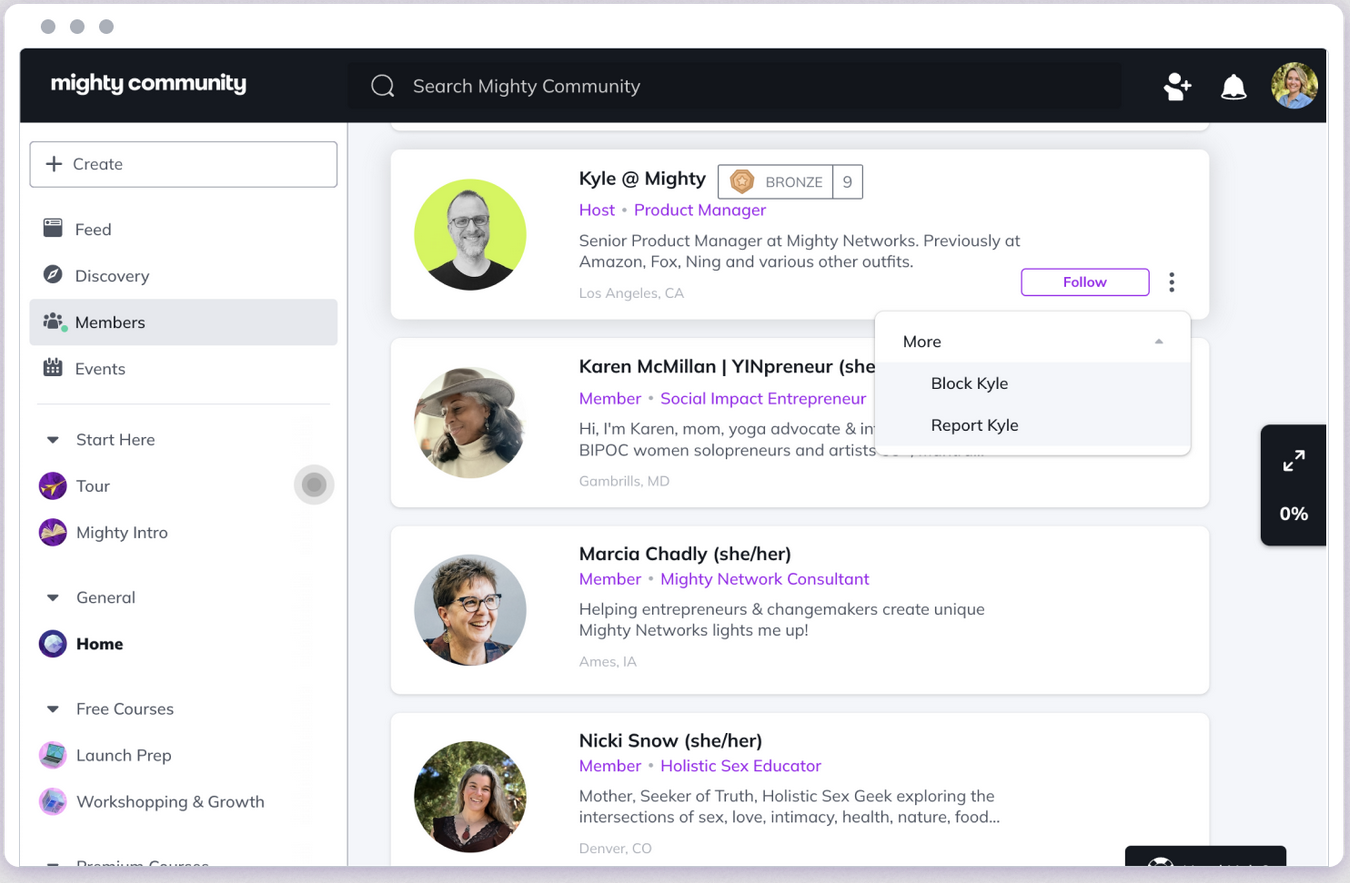
Members should know what to do to report other members that are violating guidelines. Usually this includes a "self serve" blocking or reporting function that then is reviewed by a Host.
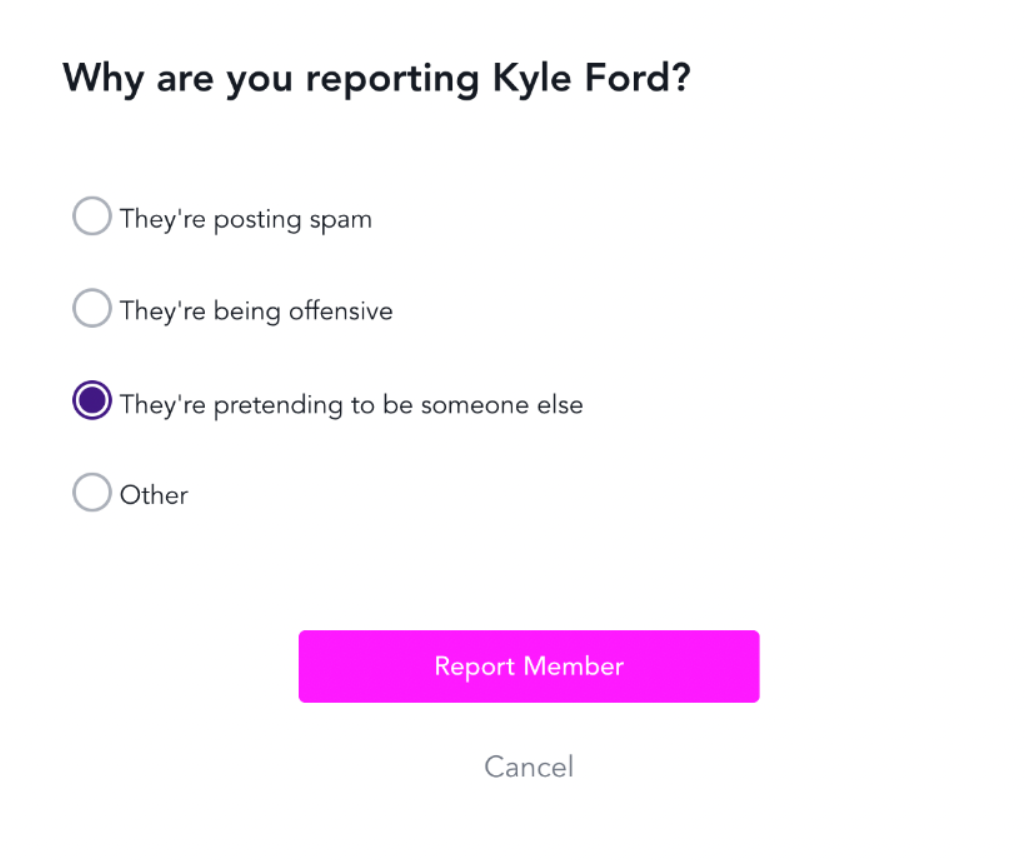
6. Review reports
As the Host, you can review moderation reports regularly. You will need to evaluate each one (perhaps in conversation with fellow Hosts or moderators).
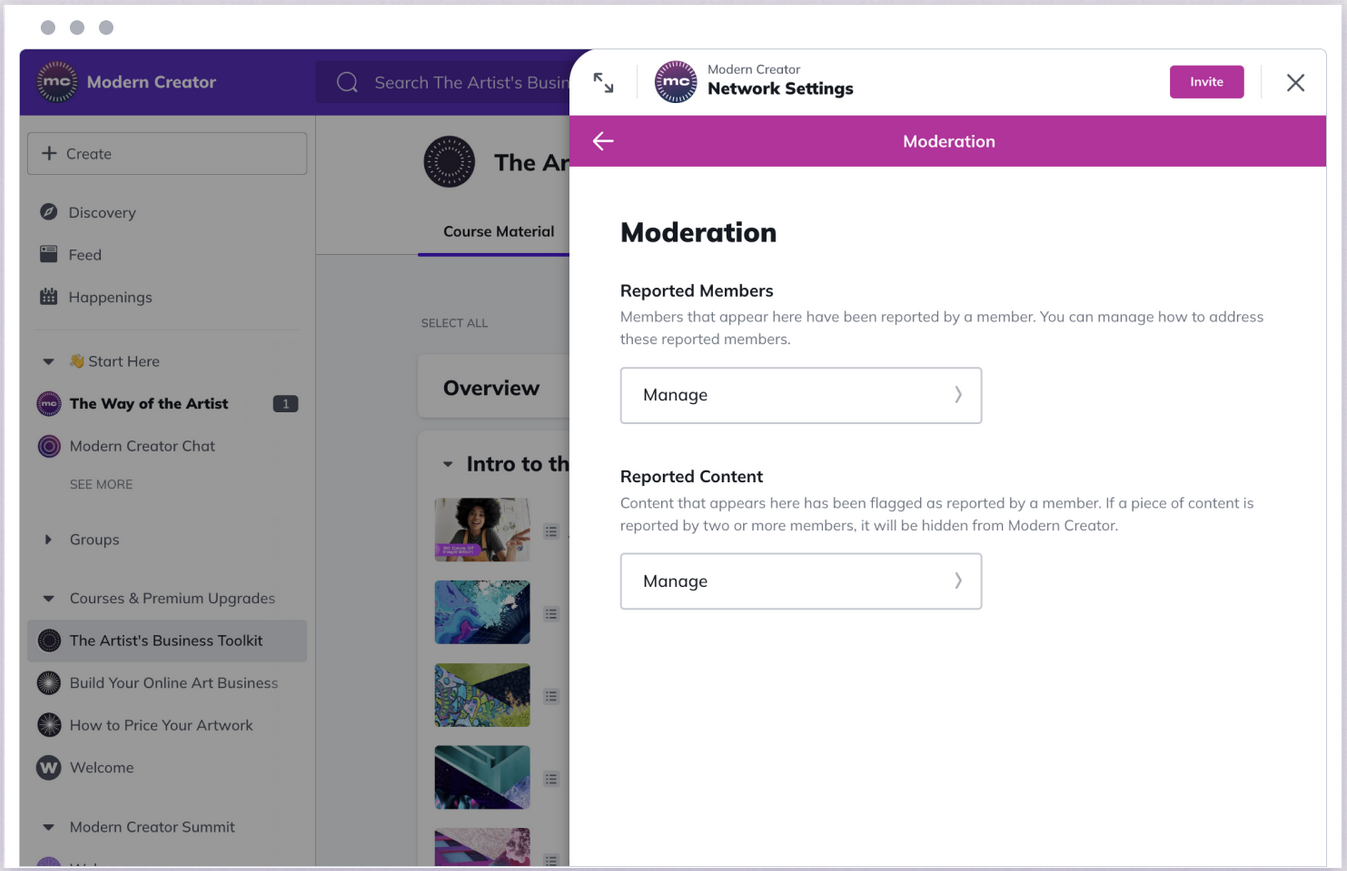
7. Take action
This is the hard part. All this background work doesn't do much good if you look the other way when the rules get broken. It will be hard at times, especially the first time you discipline a member, but take action to enforce the guidelines you've created.
Even if it's difficult, remember that the challenge of dealing with one member will make your community a better, safer space for many others.
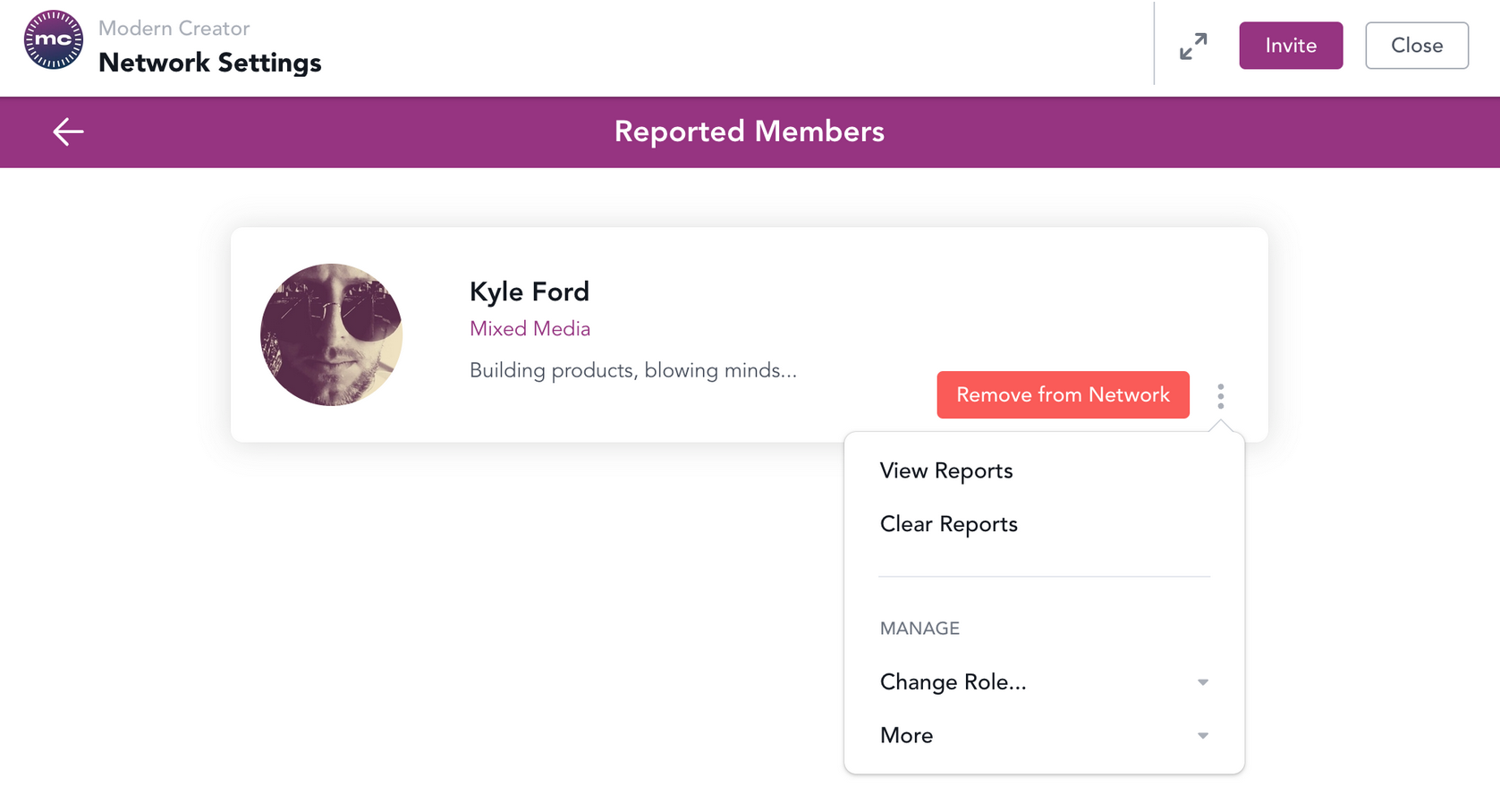
8. Report the actions taken
It's important for members to know that concerns have been handled appropriately. Here are some ways you can do this:
Include a comment like: "This thread has been reported for violating community guidelines" on a post.
Remind people of rules: e.g. "We've recently removed several posts that were spammy or self-promotional in nature. Just a reminder that these types of posts violate our community guidelines."
Create a community-wide report if necessary: e.g. "It has come to our attention that a member was harassing other members. In accordance with our community guidelines, the offending member has been removed."
9. Keep a record
If you’ve taken action on a community moderation, consider keeping a record somewhere. This might include a screenshot of an offensive post or any correspondence you have with someone you’ve had to discipline or remove.
It’s helpful for you to have these to refer to if needed.
Conclusion
Although we’re talking about some serious issues in this post, we should remind you that community moderation is a muscle that doesn’t need to be flexed too frequently. Many community Hosts will go months and even years without serious community moderation.
But if there is a problem, you’ll be thankful you put these guidelines into place.
Ultimately, it all comes down to building great culture.
If you’re looking for a place to build and host your online community, why not come build with us? Mighty is an all-in-one community and course platform that gives you a whole set of content tools: articles, video, live streaming, questions, polls, and events.
And yes… it comes with moderation tools built in.
Try it for 14 days free – no credit card required.
Ready to start building your community?
Ready to start building your community?
Start a free 14-day trial to explore Mighty—no credit card required.
More like this
Join Mighty Community
Learn the principles of Community Design™ (and see them in action) alongside thousands of creators and entrepreneurs. It's free to join!

Online Courses
Creating a Course
Teaching a Course
Course Platforms
Selling a Course
Communities & Memberships
Community Platforms
Managing a Community
Building a Community
Growing a Community
Monetizing a Community
Content Creation
Creators & Entrepreneurs
Monetization
Content Creation
Starting a Business
Website Builders
Creating & Managing a Website
Events
Event Platforms
Hosting & Marketing Events
Branded Apps
Creating a Mobile App
Coaching Apps
Community Apps
Coaching
Mastermind Groups
Starting a Coaching Business
Coaching Platforms
Filter by Category
Online Courses
Communities & Memberships
Creators & Entrepreneurs
Events
Branded Apps
Coaching
Start your free trial
14 Days. No Credit Card Required.





















